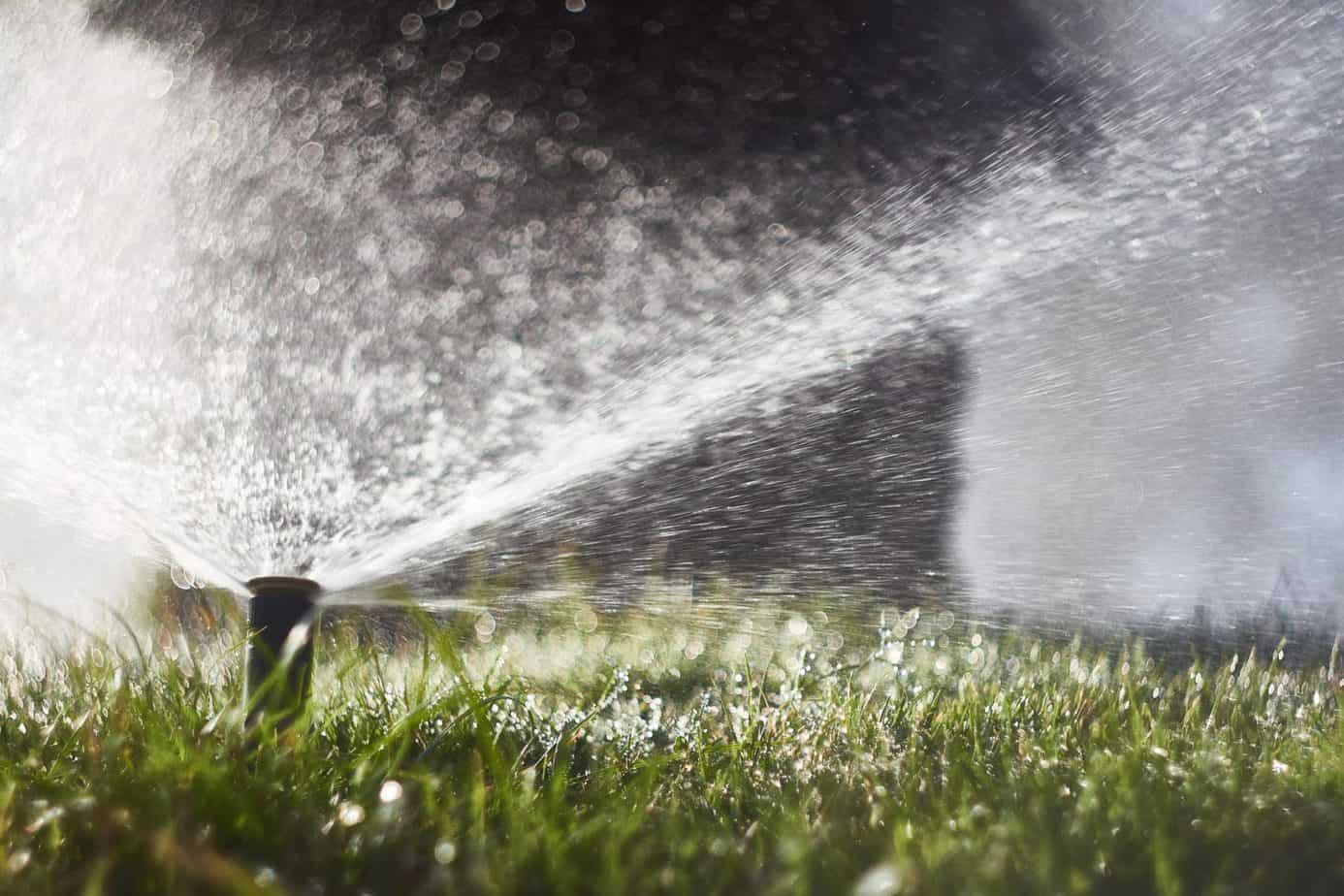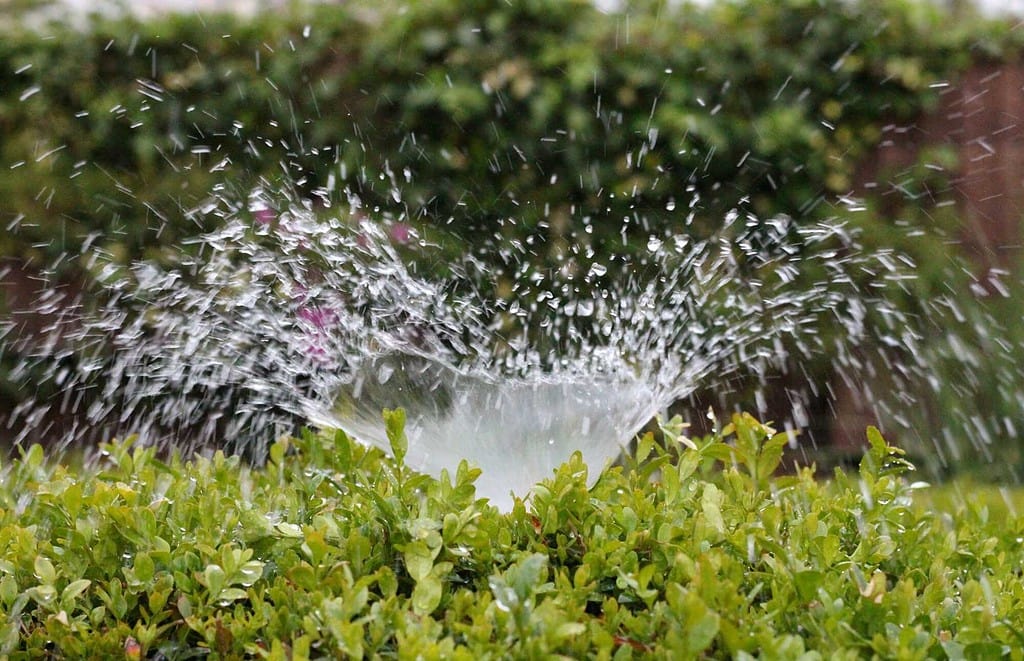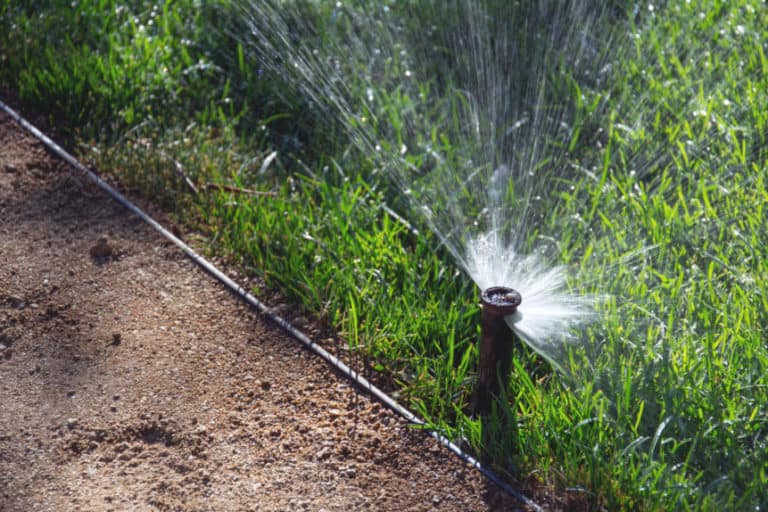Like all good things, sprinkler systems require maintenance to work at their most efficient level. Failure to maintain your sprinkler system can negatively affect its performance and longevity. Fortunately, there are several things you can do to improve the performance and lifespan of your sprinkler system. Without further ado, here are 6 sprinkler system maintenance tips for new users.
1. Set a Lawn Watering Schedule
Our first tip is to set a lawn watering schedule. Setting an appropriate lawn watering schedule per season ensures that you aren’t over or under using your sprinklers.
Generally speaking, it’s best to water lawns before 10:00 AM or after 6:00 PM. During the North Texas summers, we typically recommend watering three to four days per week. In the winter, you can usually plan on watering your lawn in the morning, once or twice a week. This should keep your yard green and healthy as well as, keep undue strain off of your sprinkler system.
2. Inspect Your Sprinkler System Regularly
It’s also important to inspect your sprinkler system regularly. This is important, as it enables you to catch potential problems early in their existence. Some of the problems to look out for include misting sprinkler heads, misdirected sprinkler heads, broken water lines, and other associated leaks.
Any of these problems could result in wasted water and cost you more money than you really need to spend. These problems could also grow worse over time, costing more in repairs later than they would early on.
The closer attention you pay to your sprinkler system, the less risk there is of undue issues cropping up. By catching problems early, you’ll both save money and ensure the longest life possible for your sprinkler system.
3. Clean Your Sprinkler Heads
Over time, sprinkler heads can take on all sorts of residue, causing them to clog and malfunction. This malfunctioning sometimes presents itself as a misdirected water stream. In other cases, it presents itself as a full-on clog, meaning that water doesn’t leave the sprinkler at all.
Regardless, it’s a problem that could be costing you money, not to mention putting undue wear and tear on your sprinkler system. Cleaning is typically simple. If you’re having trouble with your sprinkler system and cleaning your sprinklers did not seem to help, you may want to call a professional sprinkler system maintenance company. They’ll have all of the tools necessary to get the job done right.
4. Check the Valves
It’s also important that you periodically check the valves on your sprinkler system. These valves can be found on each individual sprinkler head as well as on a central area of the sprinkler system.
In some cases, the central valve is located above ground, but sometimes, it’s buried underground. When checking the valves, you just need to make sure that there’s no water leaking out of them. The entire point of these valves is to lock in the water, ensuring that it goes to the correct areas. If these valves are leaking, your sprinklers aren’t going to work optimally and may be wasting money on unused water.
5. Test the System’s Voltage
Sprinkler systems utilize electricity in order to manage their water flow. Therefore, if you own a sprinkler system, you need to be sure to test its voltage every year or so, ideally before the sprinkler season sets in.
Now, how do you go about testing the voltage of your sprinkler system? First, you’re going to need a multimeter. Once you have this in your possession, you should follow these instructions.
The voltage of your sprinkler system should fall somewhere in the range of 22 to 28 volts. Ideally, its voltage will be at 24, though a perfect voltage isn’t necessary.
If the voltage falls out of this range, you may want to call an electrician. Whatever you do, don’t try to fix this issue on your own. Electrical work is not only complex but potentially dangerous as well. As such, it should always be left to trained and licensed professionals.
6. Have It Professionally Inspected
You can handle the bulk of your sprinkler system’s maintenance on your own. However, it’s still wise to have your sprinkler inspected by a professional periodically.
Professional technicians know exactly what to look for and will ensure that your system is still operating as intended. If they do notice anything amiss, they’ll make the necessary repairs and ensure that your system is running optimally once again.
Do you need help with your Sprinkler System?
Don’t know if your sprinkler system needs maintenance or a full reconfiguration? If so, we here at Circle D Construction are the people to call. We’re well-versed in the design, installation, and reconfiguration of sprinkler systems. Contact us today to schedule an appointment!



